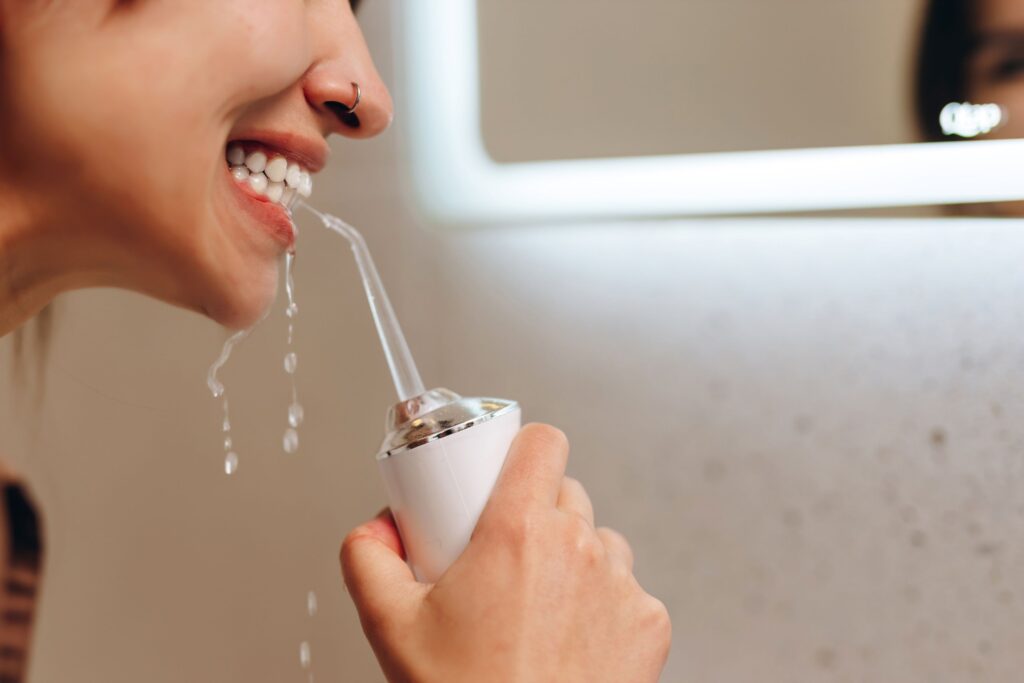
You likely already know that brushing your teeth twice daily is essential for preventing common oral issues, such as cavities and periodontal problems. However, if you don’t also floss, you won’t get a thorough clean.
Studies show that scrubbing your enamel and along your gumline only removes an average of about 43% of built-up plaque and bacteria. Flossing afterwards removes germs and residue from between your teeth and under your connective tissues, where they might be hiding. But should you use a water flosser or the traditional string? Continue reading to learn more so you can decide!
What is a Water Flosser?
Also sometimes referred to as dental water jets or oral irrigators, these devices use a pressurized stream of pulsating water to cleanse leftover food, bacteria, and other residue gently. These are often recommended if you have braces, non-removable bridge work, implants, or crowns that can be challenging to navigate string floss around, under, or between.
Also, it has an easy-to-grasp base that makes it popular among those with mobility challenges or other issues that make it difficult to manipulate string around your teeth. You might also prefer this method if you have tender gums or other sensory issues that are triggered by the standard option.
Is a Water Flosser More Effective?
If you’ve ever tried using a water flosser and felt particularly clean afterward, you were on to something! Studies show that these devices remove 29% more plaque than traditional kind does. That means it reduces the likelihood of developing tooth decay, gum disease, or damaged enamel requiring treatment to resolve.
What Type of Floss Is Best for Me?
Generally speaking, the ‘best’ option is the one that you can stick with consistently. If you avoid flossing with string because you don’t enjoy the way it feels, then an oral irrigator might be a better fit for you. With that said, these devices cost more than purchasing string floss at a store, so you might stick with the traditional method if you’re on a tight budget.
There’s no rule that says you can only use one type of floss; why not try both methods and see which one you prefer? You might even create a pros and cons list to clearly identify what you appreciate and dislike about both options, helping you make a more informed decision.
If you’re struggling to keep your smile clean, it’s also a good idea to contact your dentist for an appointment. They’ll examine your mouth, provide a professional cleaning, and are happy to discuss ways to improve your at-home oral hygiene routine to improve your dental condition.
Meet the Author
Dr. Wiese is passionate about helping people in Sachse improve their daily lives by helping them build and maintain happy, healthy smiles. He earned his dental degree from the Baylor College of Dentistry and is a member of several prestigious dental organizations, including the American Dental Association. Today, he offers a comprehensive menu of services to meet all your needs conveniently under one roof, including preventive care. If you’re worried about gum disease, you can request an appointment on the website or call (972) 992-1340.




